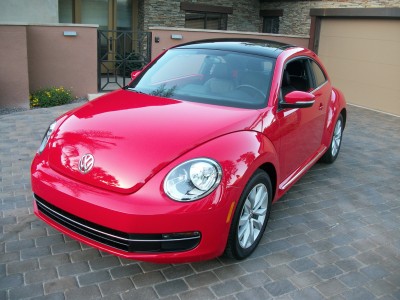 I like the Beetle, and find it much better looking and better trimmed than its “New Beetle” predecessor. And by now, it seems like I’d driven just about every variant of the Volkswagen Beetle except I hadn’t yet been behind the wheel of the TDI, so when the offer was made I eagerly accepted.
I like the Beetle, and find it much better looking and better trimmed than its “New Beetle” predecessor. And by now, it seems like I’d driven just about every variant of the Volkswagen Beetle except I hadn’t yet been behind the wheel of the TDI, so when the offer was made I eagerly accepted.
I’m not sure exactly what I was expecting. I’ve had countless diesels over the years ranging from Mercedes 123s to Oldsmobiles, so I’m pretty used to the diesel animal. I’ve gotten a tan from the WAIT light over the years and have fine-tuned my ear to the chortle. But what they sent me was totally alien. Yes, it was the 2.0 TDI, with 140 horsepower and 236 ft-lbs of torque. And it said diesel on the price label. But outside of some pretty impressive low-end torque, it sure didn’t act like a diesel.
In fact, I called it the Un-Diesel. It didn’t clatter, it didn’t chortle, there was no familiar diesel smell at all, it didn’t even have a wait light — in fact, the only starting procedure was to turn the key. Mated to VW’s DSG dry-clutch automatic, it performed like a reasonably powerful gasoline engine. The only time I was even aware that it was a diesel was on the freeway (the 43 mpg caught my eye) or at the gas pump where the DIESEL FUEL REQUIRED sticker reminded me that it was, in fact, a diesel.
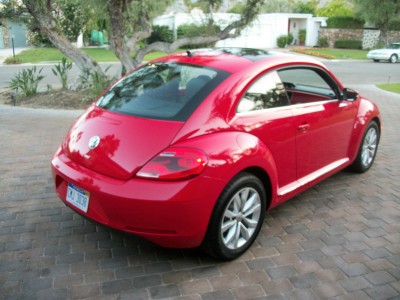 There’s one other place where I noticed that it was a diesel: on the window sticker. You’ll pay a hefty premium for the TDI. It’s priced $4,200 above a base Beetle, and that makes me do some thinking. Yes, it’s rated at 28/41 mpg (with the DSG automatic), but with the cost difference, only a serious freeway flyer is going to make this thing pencil. For the same price, I’d take the R-line with its 2.0 Turbo.
There’s one other place where I noticed that it was a diesel: on the window sticker. You’ll pay a hefty premium for the TDI. It’s priced $4,200 above a base Beetle, and that makes me do some thinking. Yes, it’s rated at 28/41 mpg (with the DSG automatic), but with the cost difference, only a serious freeway flyer is going to make this thing pencil. For the same price, I’d take the R-line with its 2.0 Turbo.

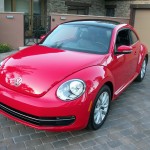
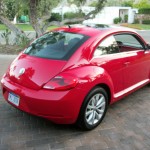
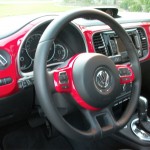
A $4,200 premium? No way!
I had a Golf TDI for four years. I loved that car, BUT once it hit 60K miles everything started to go. Every time I took it in for repairs it cost $1000. Got old real fast…